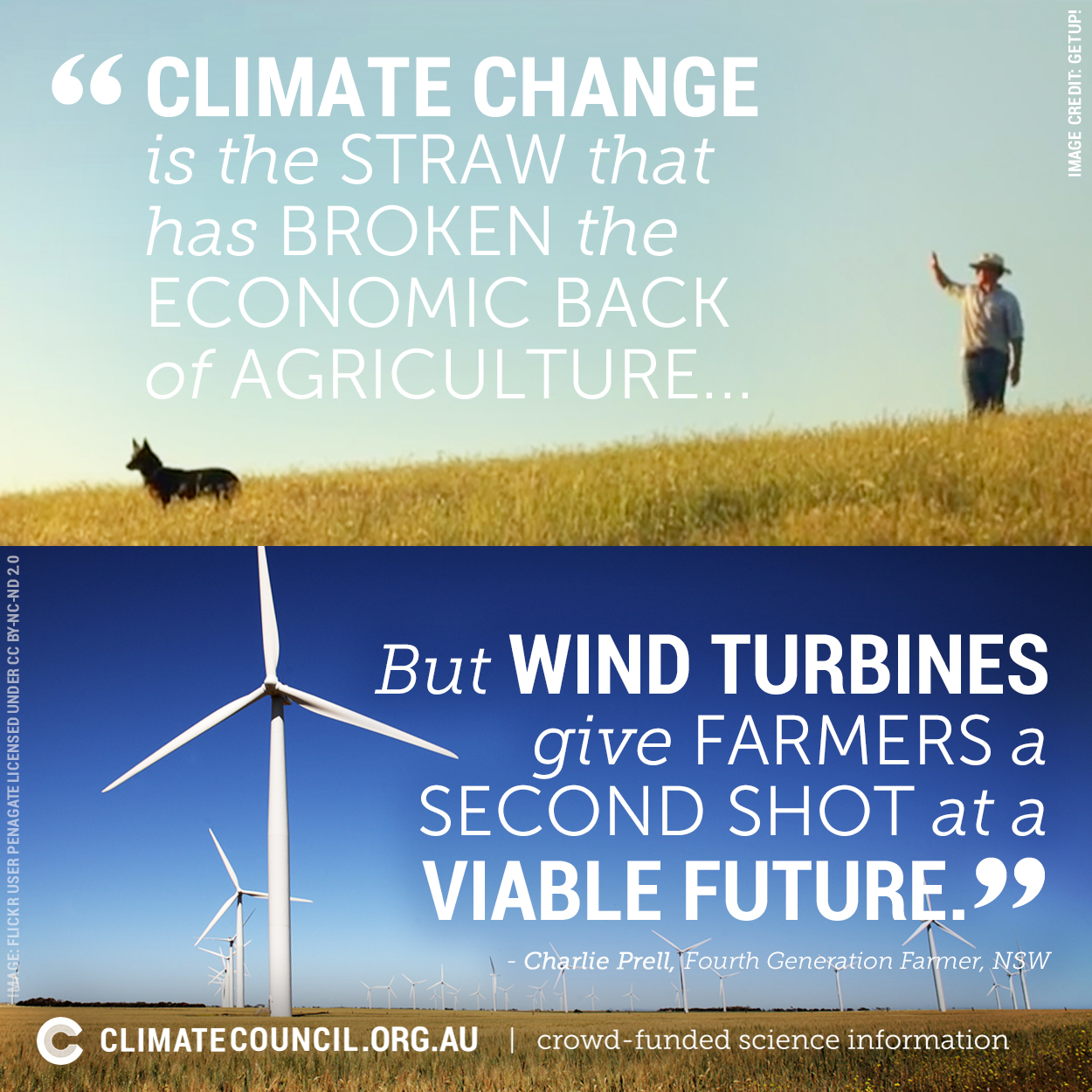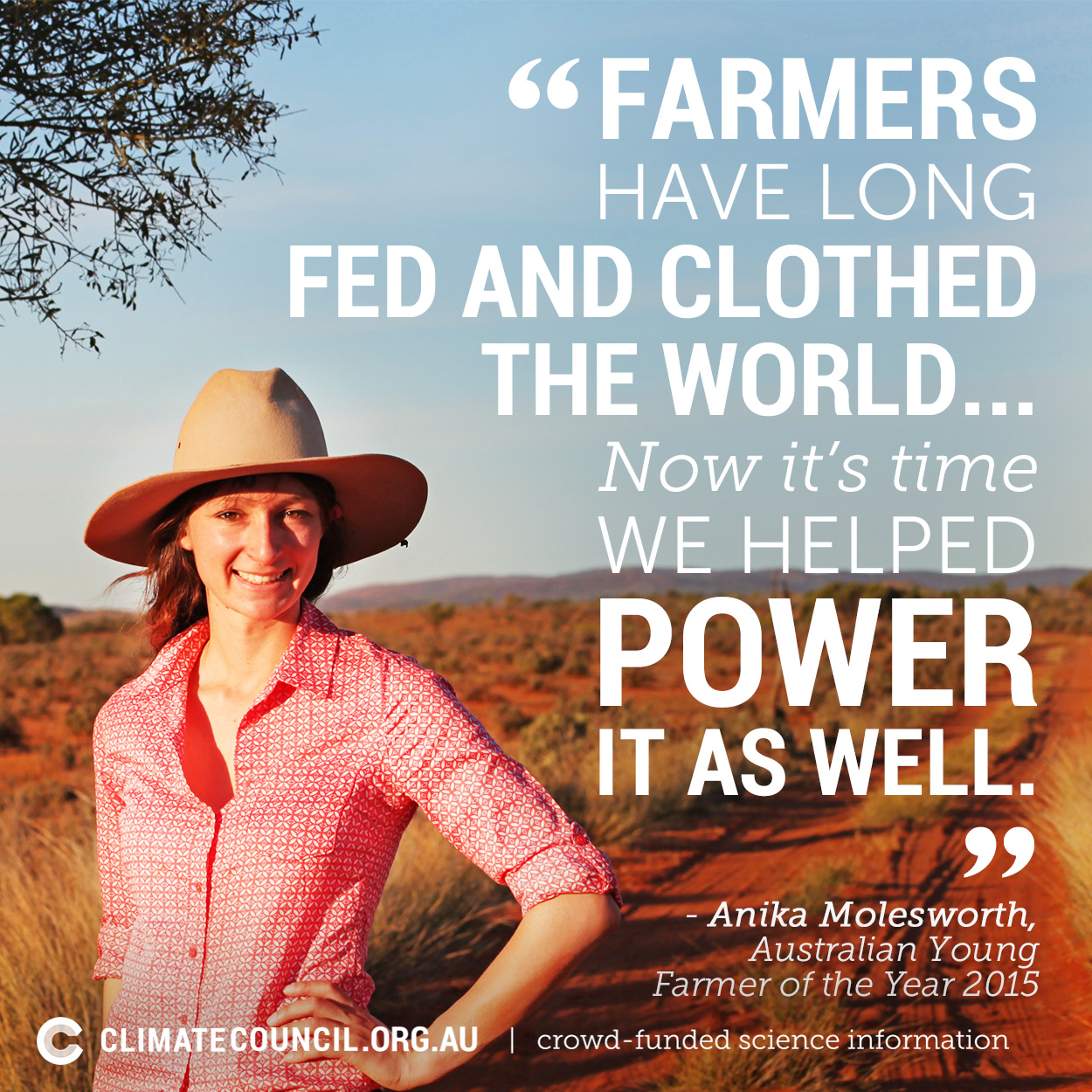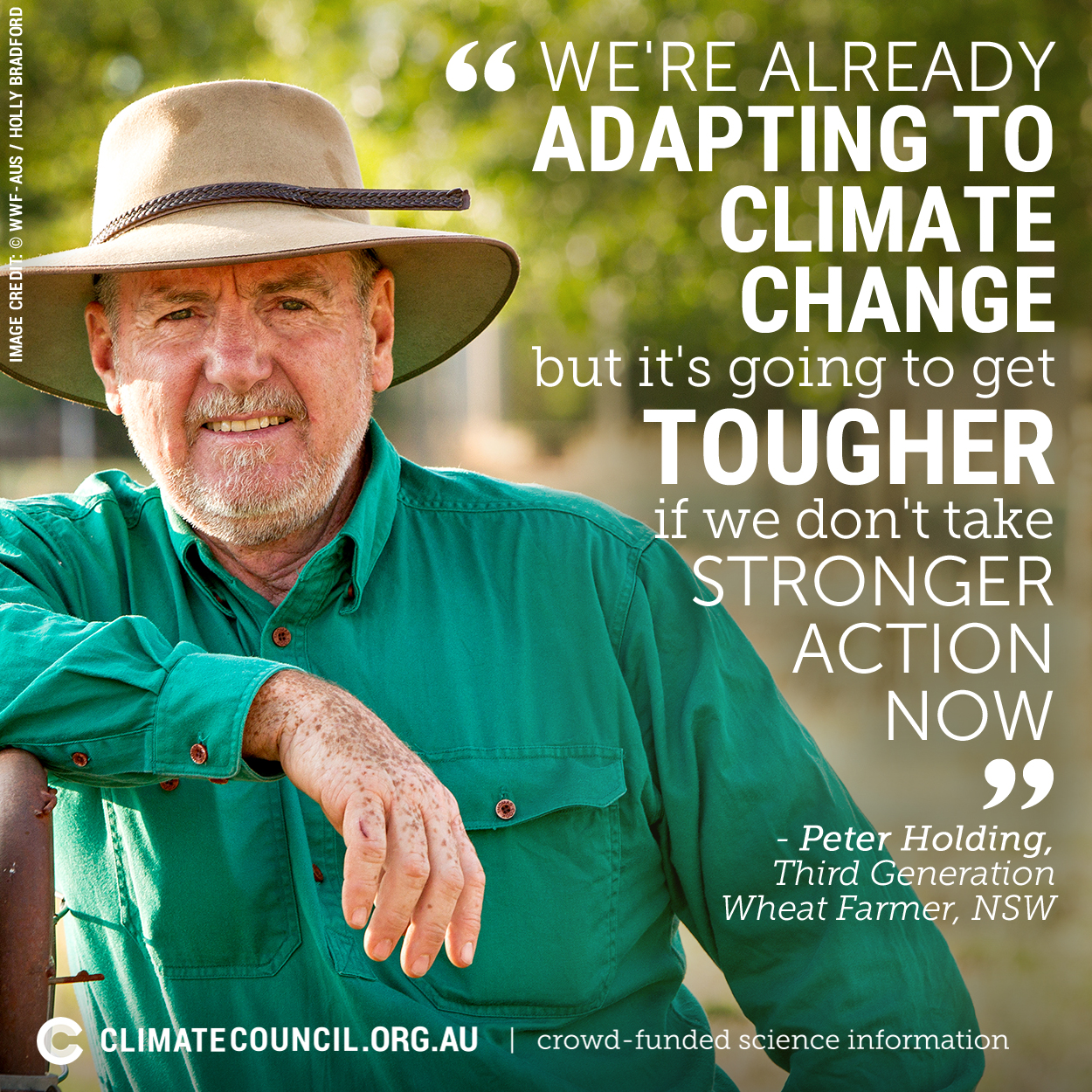NEW REPORT: Climate Change & Rural Communities
How is climate change impacting Australia’s rural communities?
Four farmers share their stories with us – and show that while rural communities are on the frontline of climate impacts, they’re also at the forefront of opportunities and solutions – adapting to a changing climate and leading Australia’s transition to renewable energy.
Charlie Prell
Farmer & wind activist, NSW
Charlie is a fourth-generation farmer on ‘Gundowringa’, a 2000 acre sheep and cattle grazing property in Crookwell, NSW. The Prell family has been on the land for a hundred years, and it’s a lifestyle and tradition Charlie is passionate about – but it hasn’t come easily, and its future is unclear.
The Millennium drought brought Charlie’s farm to the brink of bankruptcy, and concerns about the ongoing viability of farming led him to become an advocate for renewable energy as a second, reliable income for farmers.

“The traditional family farming system that our family has been using for 100 years has failed. Without a passive income stream – whether it’s from wind farms, off-farm income, investments or otherwise – traditional family farming, where 100% of the income comes from agriculture, is not viable today or into the future.”
Anika Molesworth
Australian Young Farmer of the Year 2015
Anika’s passion for farming began when her family bought a sheep station outside Broken Hill in western NSW. It was the year 2000, and the very start of the decade-long Millennium Drought – which provided a tough introduction to farm life, but also highlighted the close interrelationship between the climate and farming.
Anika now represents a new generation of tertiary-educated, technology-savvy farmers who recognise the increasing challenges faced by the agriculture industry, and are tackling them head on with innovative solutions and sustainable farming practices.
Anika is a strong advocate both within and outside of agriculture for action on climate change, particularly the uptake of renewable energy.

“Renewable energies are here, they are available, they are the future – and I really want to see them adopted on a greater scale in Australia. I think farmers need to have the good governance, the education, the incentives, to transition away from fossil fuels and really embrace these renewables. And they are in such a great position to champion these energies too.”
Trent De Paoli
Chilli and avocado farmer, QLD
Trent is a third-generation farmer in Bundaberg, Queensland. He runs the largest chilli farm in Australia… and it’s solar-powered! The farm’s 100Kw solar system produces 400-500kWh – enough to provide about 20% of the farm’s needs. And they’re planning to install another 200Kw!

“We are in the business of foreseeing opportunities and continually challenging how we can improve ourselves and the world around us”.
Peter Holding
Wheat and canola farmer, NSW
Peter is a third-generation farmer on his family property in Harden, southeast NSW. As well as growing crops such as canola and wheat, Peter runs sheep for wool, and has witnessed first-hand the impacts of a changing climate on his land.
“There is no doubt the weather is changing. It’s becoming more extreme.”

“Rainfall used to be spread evenly throughout the year but the consistency has disappeared. We experienced an unprecedented dry spell from 2001 to 2009, instead of the 12 or 18 month drought we would usually get in this area. Since then we’ve had two wet harvests that destroyed crop quality, then 3 years of very low spring rainfall followed by a hot finish that destroyed yield. This year it’s been so wet that some crop is already dead. It is very difficult to exist in this environment of extremes.”
According to Peter, the impact of climate change is already causing Australian farmers to change their practices, whether they recognise it as “climate change” or not.
To find out more about the impacts of climate change on Australia’s rural and regional communities, check out our latest report.
Header image credit: GetUp!